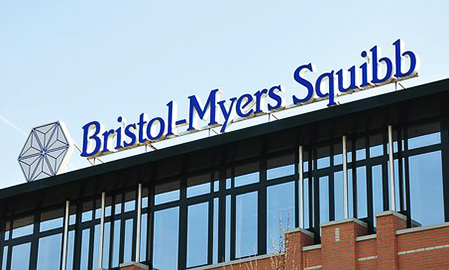Well, that didn’t take long. Soon after the first PD-1 inhibitor was approved in Japan and the US, the patent war over the lucrative new class of oncology treatments has begun. Bristol-Myers Squibb filed a suit late last week, WSJ reported, alleging that Merck violated a patent belonging to BMS marketing partner Ono Pharmaceutical. BMS alleges that Merck knew Opdivo (nivolumab) was already in development when it began work on its own PD-1 inhibitor, Keytruda (pembrolizumab), and points to an SEC filing by Merck that acknowledges Ono as the patent-holder. With the great deal of money at stake for these therapies, it’s not inconceivable that pharma’s own patent warfare is just getting started—and could preclude the kind of constant litigation exhibited among smartphone manufacturers.
Purdue last Thursday reported results of one- and three-year studies demonstrating that reformulated OxyContin showed a “marked decrease in abuse, addiction and poisoning” after it was introduced. The first study observed a 12% decrease in “diagnoses for opioid abuse, addiction and position,” compared to the year before the reformulation. Rates over a three-year period declined by more than 70% by the completion of the study.
GlaxoSmithKline’s experimental Ebola vaccine looks like it could make a difference, if early animal tests translate into similar human results. Bloomberg reports that monkeys infected with Ebola five weeks after receiving GSK’s experimental vaccine survived and did not develop any of the virus’s symptoms, but monkeys that were infected and had not received the vaccine died. Bloomberg says the preventative treatment could become available to healthcare workers by October, but notes that the preventative measure does little to help infected patients. Around 10 post-infection drugs are being tested to help victims. The virus has killed over 1,900 patients, and cost estimates for containment, let alone treatment, continue to rise. Bloomberg reported earlier that the European Commission agreed to provide $181 million to help “strengthen medical systems in affected countries,” and that the US agreed to provide $75 million to support healthcare workers and provide equipment.
AstraZeneca’s experimental COPD drug benralizumab failed to hit its primary target—reducing the rate of serious attacks—although the Phase-II trials showed it was associated with clinically significant improvement in lung function. Reuters reports that the UK drug manufacturer released the findings about the injectable at the European Respiratory Conference in Munich. AstraZeneca announced in July that it was pursuing Phase-II clinical trials.
Eli Lilly is taking the Department of Health and Human Services and the Centers for Medicare and Medicaid Services to court. The Wall Street Journal reports that the Indiana drugmaker wants the government agencies to overturn the decision not to cover its Alzheimer’s disease imaging agent Amyvid. Amyvid detects beta-amyloid plaque which is associated with Alzheimer’s disease, but its presence does not necessarily indicate the patient has the condition. CMS turned down the agent because the agency said there was little proof that it would improve health outcomes. The WSJ notes that analysts estimated CMS coverage would have meant around $500 million in sales, and the agency’s refusal reduced that estimate to around $100 million in sales, because the majority of patients who would use the scan are covered by Medicare.







